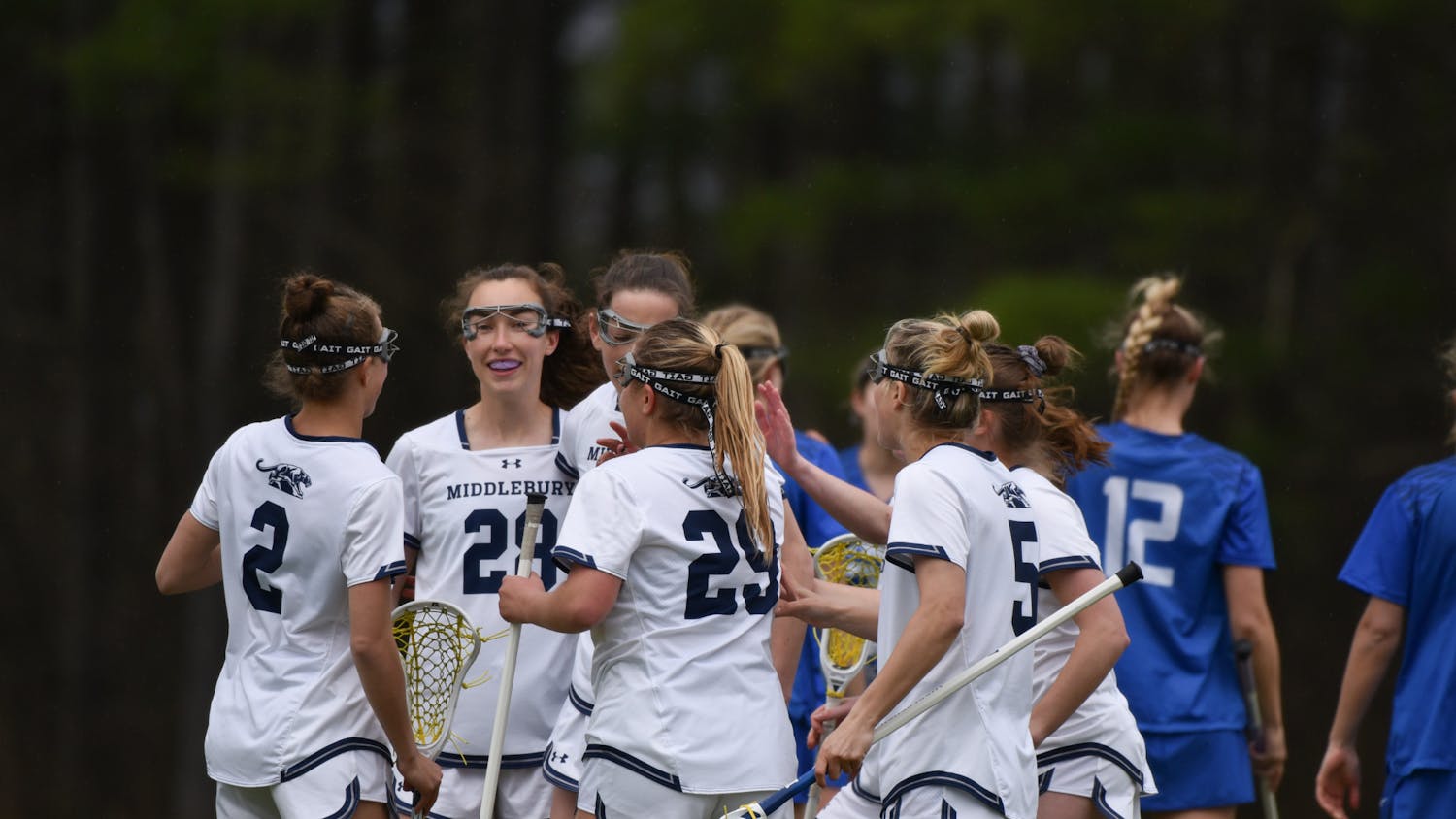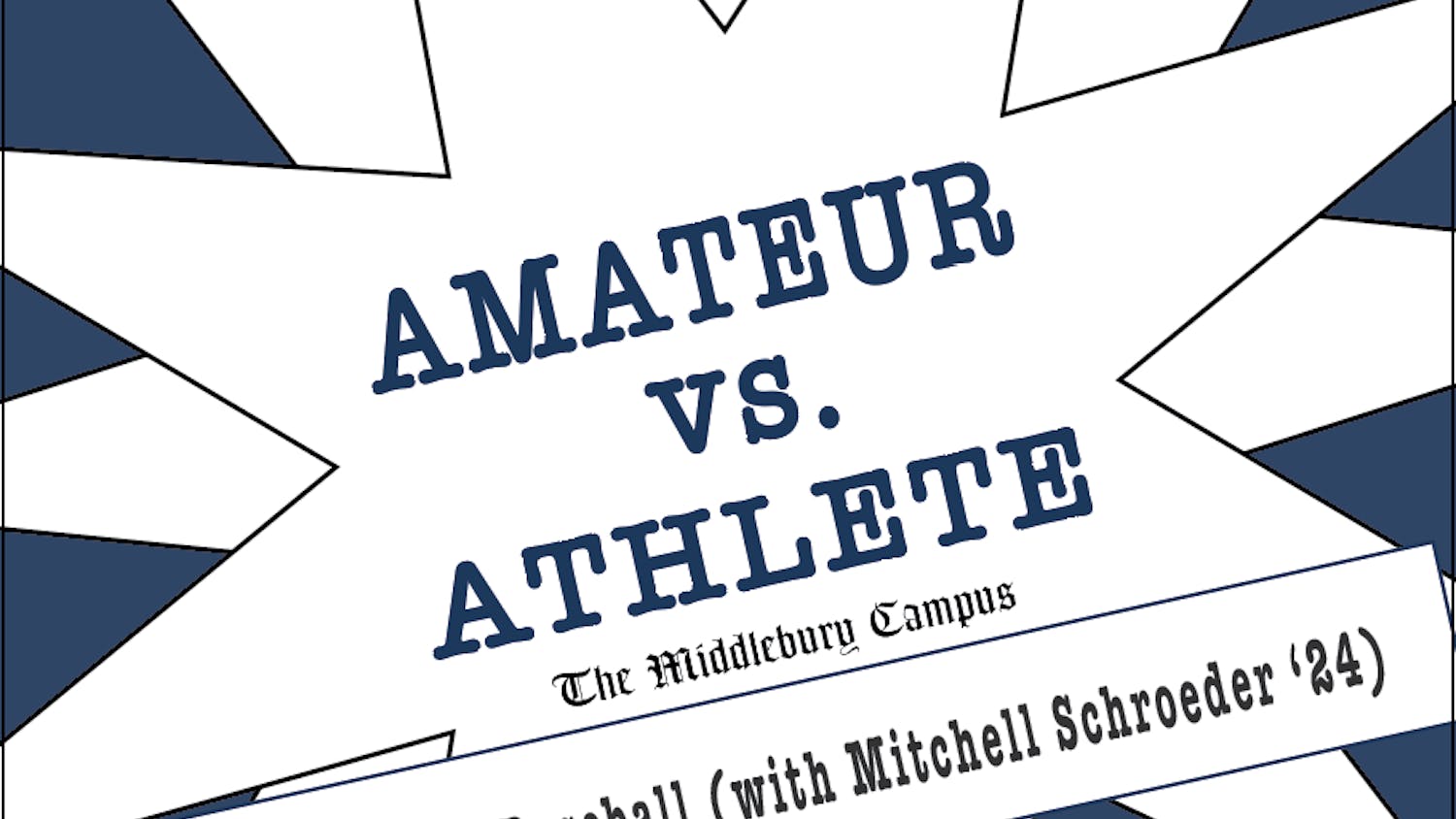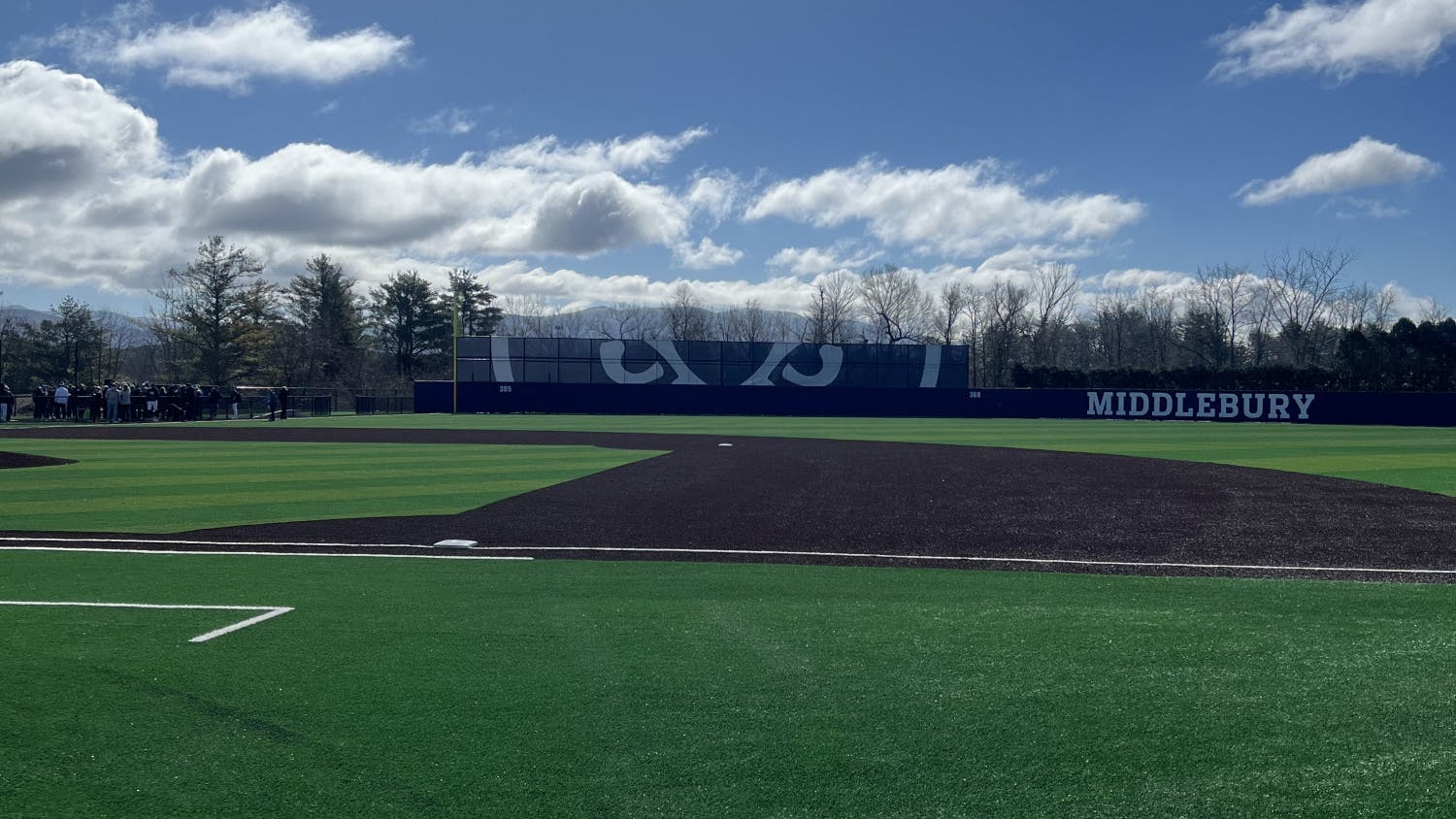For men’s lacrosse, it all comes down to this Friday against Williams.
With a loss this Friday at Williams, the Panthers would enter the NESCAC playoffs as the number-eight seed for the first time ever. Just as quickly as three consecutive wins can revive a team, one critical loss can put it back on life support.
It is hard to think about Middlebury men’s lacrosse without reminiscing about the historic greatness of the program. The team was synonymous with elite. Between 2001 –– the establishment of the NESCAC tournament –– and 2007, the Panthers won each NESCAC championship by an average margin of 4.5 goals per game. Seven straight seasons the Panthers entered and exited as the number one team in the NESCAC. But much like many of Middlebury’s sports, lacrosse has fallen on hard times.
To diagnose this ailing extension of the College would be to oversimplify. It would be easy to point a finger at the administration –– blue-chip recruits have an easier time getting into less academically-rigorous NESCAC schools –– or at least those content with their rankings. It would be easy to point a finger at the new coach: the program he left behind has risen to the top, while the one he took over has plummeted to the cellar. It would be easy to point a finger at the players: no one is capable of taking ownership of this team. That is not to say there are not leaders; this team is replete with guys who want to win, want to lead, want to elevate Middlebury to the glory that suits it best. But wanting it is not always enough. Somebody has to will this team to victory every game.
Alas, the program must wait at least one more year for the second coming of Matt Dunn ’02.
The lacrosse team –– and many other sports for that matter –– is losing its life-blood. From recruits to fan support, Middlebury is no longer an elite athletic institution. Quick, which team won the most recent national championship?
The answer: the 2008 Women’s cross country team.
That was a little easy, but I wouldn’t be surprised if quite a few people were stumped. That the college has climbed in US News and World Report rankings, on the other hand, is not something far from anyone’s mind.
This paradigm shift away from athletics is not the result of increased admissions standards or decreased results. It stems from the misplaced, but prevalent perception that athletes are single-faceted members of community. It is hard to champion the ever-present scapegoat.
What athletes bring to this college is not limited to the field, ice or slopes. For a community that prides itself on diversity of all types, the college often feels divided between athletes and non-athletes.
Three years ago, two seniors stood up against these biases against student-athletes that were tolerated even in the face of Middlebury’s ultimate desire for total equality. Biases that led to athletes –– who were later acquitted –– being primary targets in cases of homophobia and a general under-appreciation of the non-athletic contributions made by our athletes. It does not seem that anything has changed.
The absence of overt symptoms does not imply the absence of disease. When you dig deeper, it is clear that the bias still exists.
If you search “athlete” at middleburycampus.com, you have to scroll past a host of articles before getting to anything positive.
Athletes targeted as homophobic, requiring unfair advantages to be accepted to this school and the College considering reducing athletic recruiting all appear before talk of the tri-sport athletes who balance the immense workload of this school with the year-round commitment of being an ambassador for our school.
It is hard to quantify what athletics mean to an institution. They are a source of immense pride, they instill qualities like leadership, perseverance and integrity that are elusive in the classroom, and they bring people together. Nothing gets a group of students out of the dorms in the dead of winter like a hockey game. Nothing entices people to break out shorts –– albeit prematurely –– like the first spring lacrosse game. They enrich the classrooms, social spaces and community that we all inhabit on a daily basis. These are invaluable assets to this school that are born of the hard work of our student-athletes.
The word “athlete” derives its meaning from Greek, meaning “one who competes for a prize.” Everyone competes for a prize every day. Our student-athletes just do it for the rest of us too.
This Friday the Middlebury Panthers take on the Williams Ephs in lacrosse. Superficially, they compete for seeding in the NESCAC tournament, but really, they represent one more way we –– Middlebury as a whole –– beat Williams to the prize.
Athletes battle to save image, standing in NESCAC
Comments



